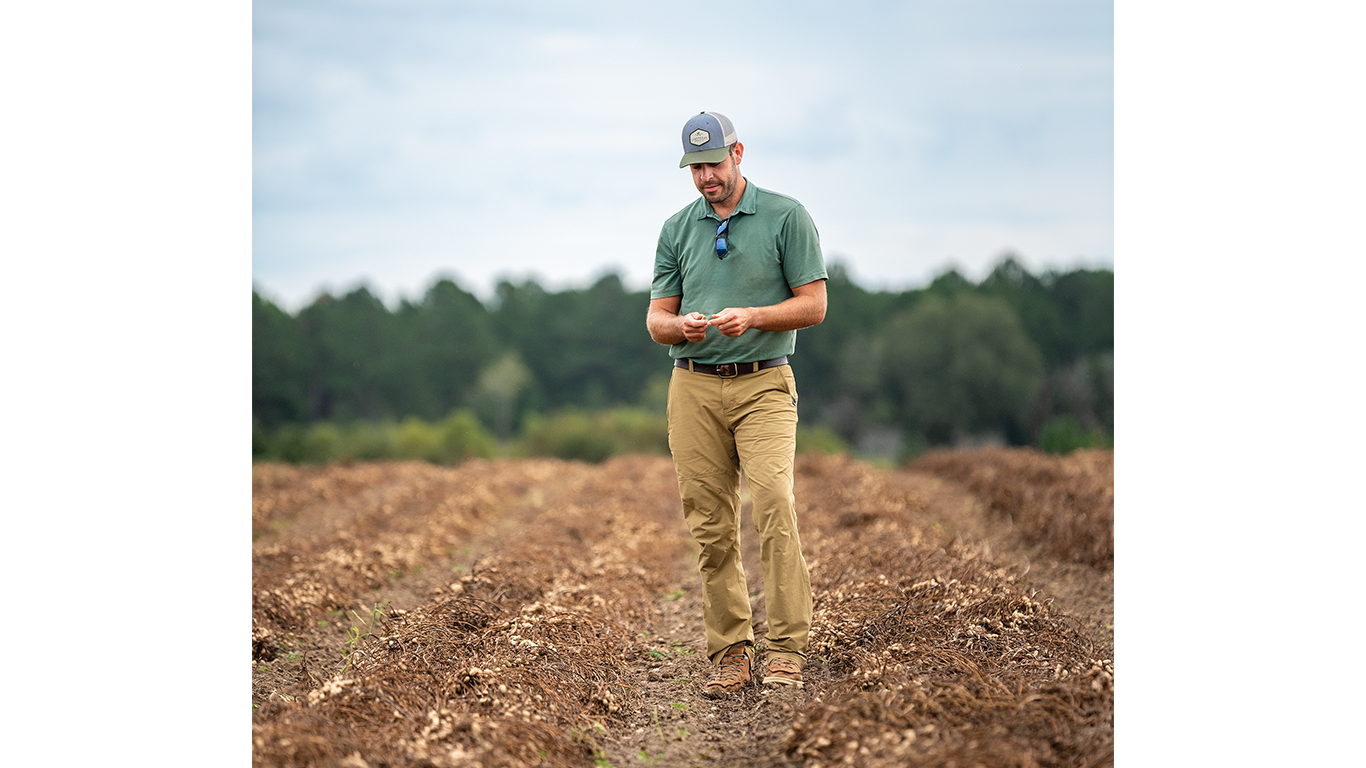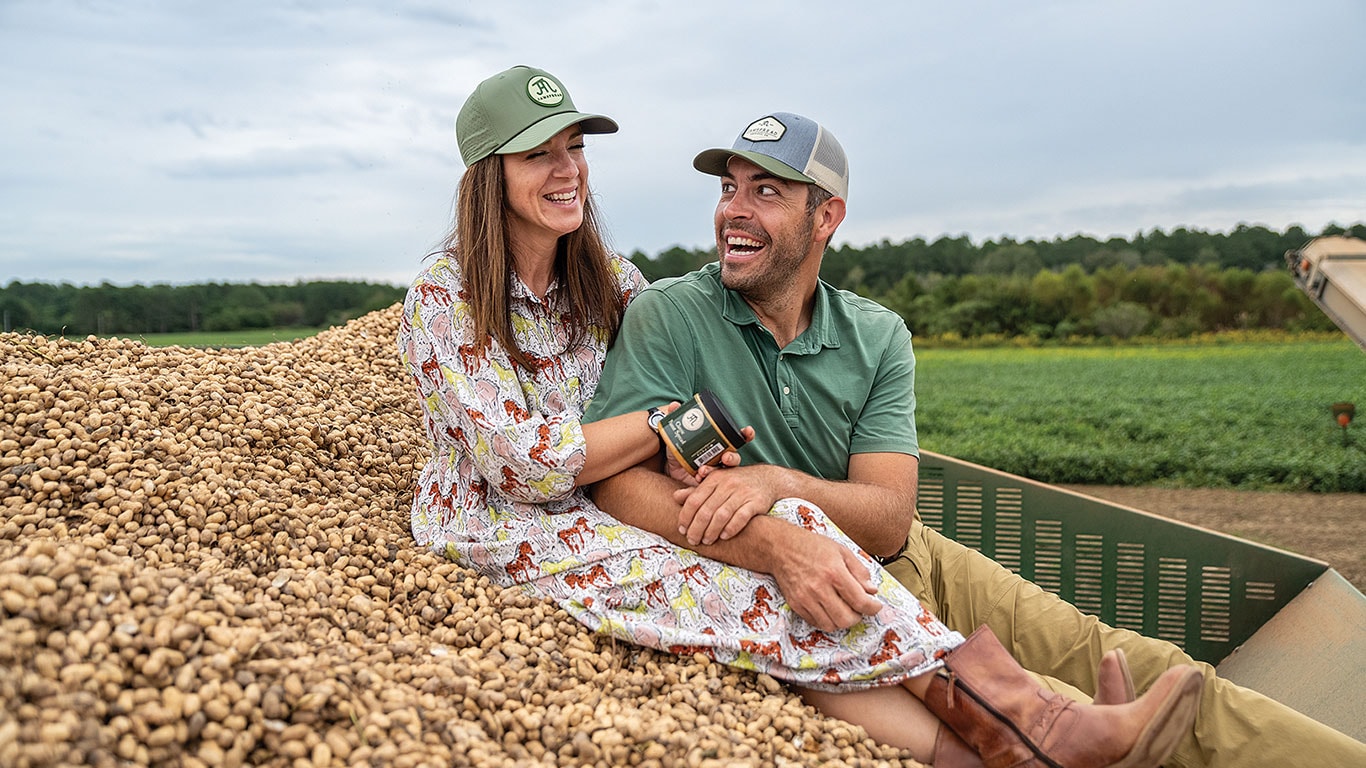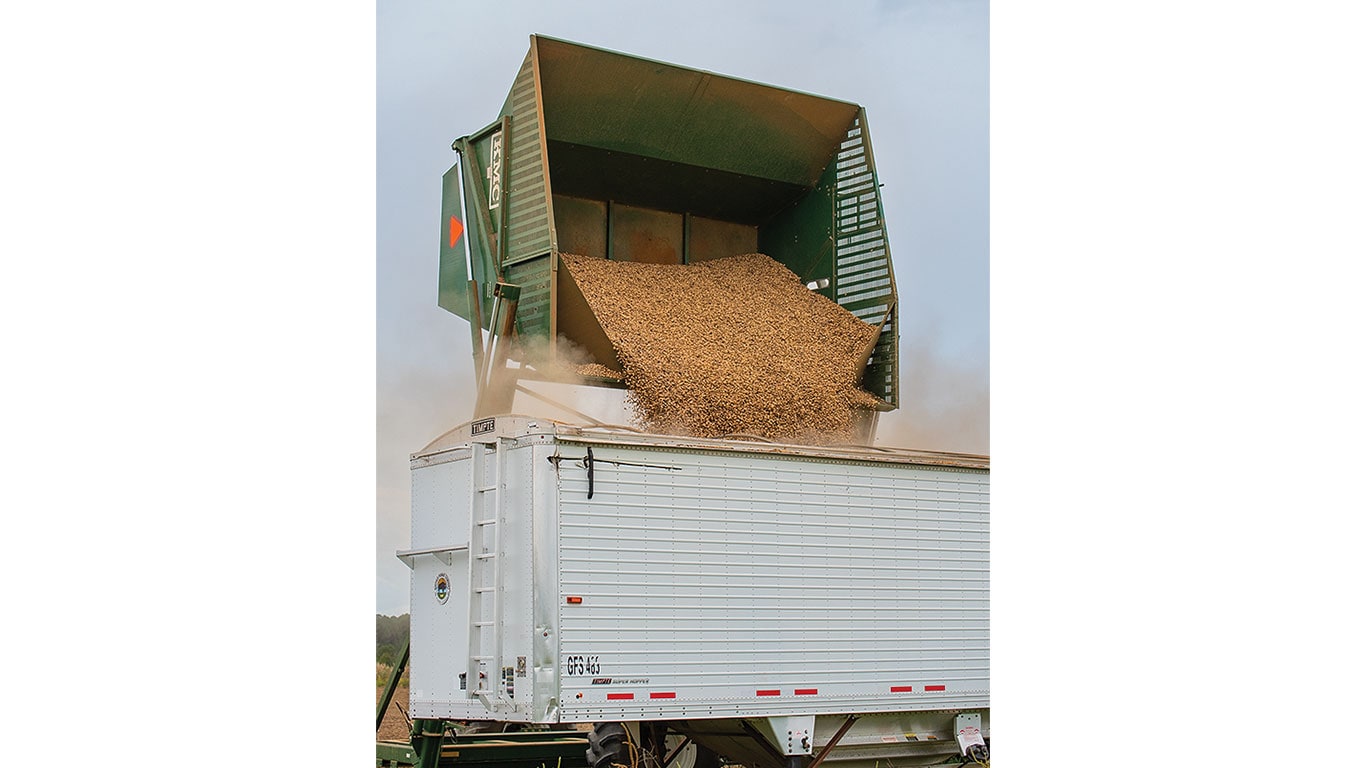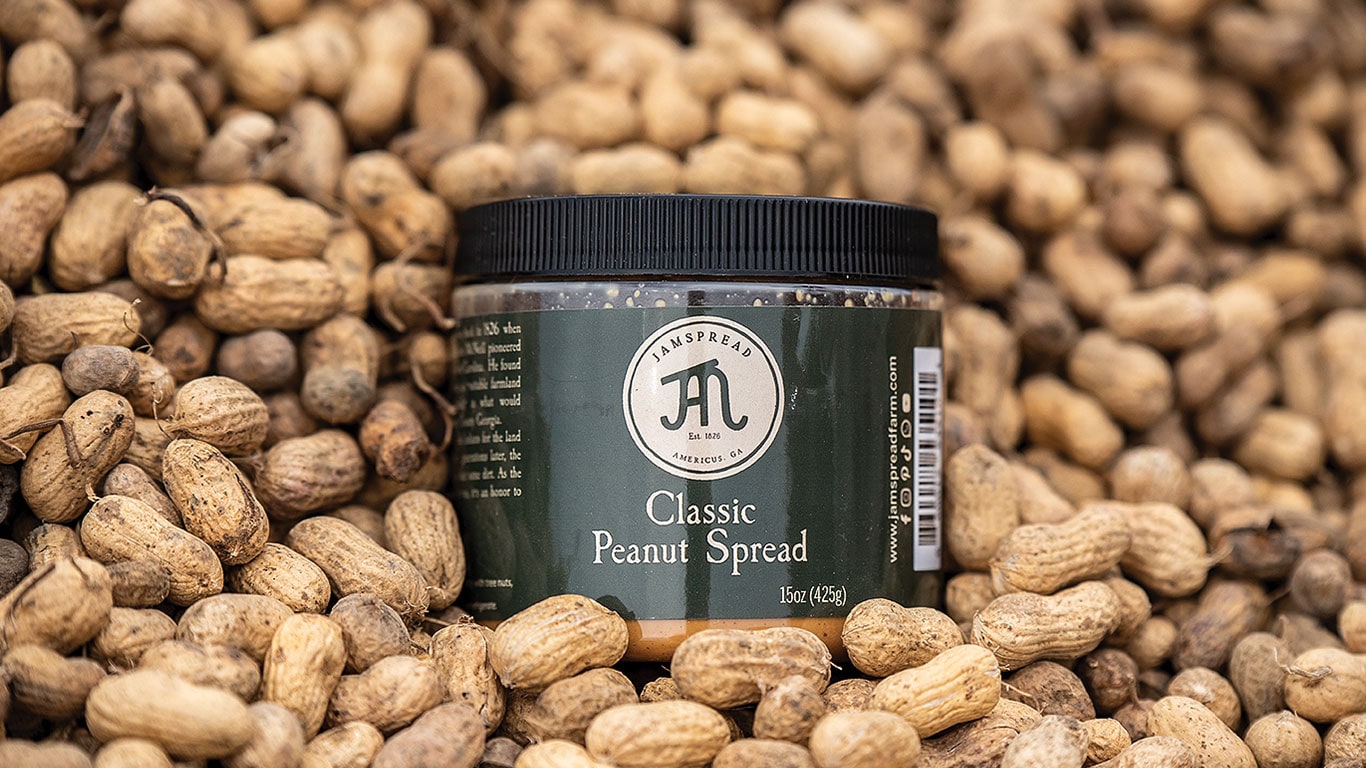
Jess McNeill, seventh-generation farmer from Americus, Ga., checks peanut quality during harvest. Peanuts are dug, flipped upside-down, and left to dry a few days before they're run through a combine to remove the in-shell nuts from the vines. All of the vegetation is spread back on the field to be incorporated back into the soil.
Agriculture, Farm Operation November 01, 2025
Crunching the Numbers
Peanut farmers crack code on adding value through artisan butter.
Story and Photos by Katie Knapp
The average American eats 7.3 pounds of peanuts a year spread between a few handfuls of roasted nuts here and there, candy when the craving hits, and a smear or two of peanut butter each week.
MeriBeth McNeill from Americus, Ga., does not fit this USDA stat reported by the National Peanut Board because she's allergic to peanuts. But she is married to a seventh-generation south Georgia row crop farmer who loves raising them, so she thinks about peanuts way more than the average American.
Her husband, Jess McNeill, could go on for hours about the benefits the crop brings to his soils and the potential he sees for markets beyond edible nuts and food-grade oils. As much as he loves growing peanuts, the crop has not been helpful to the family's pocketbook lately.
"Inputs aren't getting any cheaper. Labor is not getting any cheaper. Nothing is getting cheaper. It's only getting more expensive. So, we've got to have more uses to create more demand," Jess says in a way you can feel the weight on his shoulders. He says the revenue per acre is much tighter on peanuts than his other crops, particularly because of how the market price is controlled, and it is more labor intensive than other crops. They spend the extra money and effort to employ two South Africans through the H-2A visa program because skilled labor is so hard to find in their area.
"I'm committed to peanuts because it is our niche here in south Georgia," he adds. "But the bottom line is that we need more revenue per acre than we have been getting."
MeriBeth says she would lie awake thinking there had to be a better way.
With a degree in dietetics and her own restaurant, she knows what a difference it makes when consumers know where their food comes from. So, she started digging into the artisan peanut butter market.
"It was wild to me that none of the brands I found were based in the southeast where all the peanuts are grown and none of the makers knew where their peanuts came from."
Above. Peanuts grow on underground vines (not the plant's roots) and are trucked to the processor whole. MeriBeth (who is allergic to peanuts only if ingested) and Jess McNeill launched a private-label peanut butter line fall of 2024.
Conversation after conversation proved there is an appetite for peanut butter linked directly back to a farm like McNeills'. "The obstacle is in the middle," Jess explains. "We don't have the shelling or processing capabilities on-farm like there is for other farm-direct commodities."
Not having interest in actually making their own peanut butter, but rather wanting to partner with an artisanal maker, they kept searching for someone to make the "deep, dark holes in between," as MeriBeth puts it, disappear.
Their persistence paid off and they eventually found the right partners to start their venture—a peanut butter maker in Pennsylvania willing to source straight from their farm and a new, 175-farmer-owned co-op processor who could connect the two and has the ability to do smaller, identity-preserved runs. Despite the shipping costs to Pennsylvania and back, the maker was a great place for McNeills to start because he already had a good recipe and didn't distribute yet in their region.
"We are still trying to clear the first hurdles, but if this works and other companies come along looking for farm-direct peanuts, this could open a world of new opportunities for other farmers," MeriBeth says hopefully.
McNeills launched their private-label, small-batch peanut butter in late 2024 under the farm's name, Jamspread. The farm, which dates back to 1826, was nicknamed with family initials by Jess's grandfather.
In the first few months of word-of-mouth advertising and selling online at jamspreadfarm.com, customers have raved about the quality, nutrition profile, and additional flavor combinations.
McNeills will continue to raise seed peanuts for the University of Georgia on much of their peanut acres, but this new outlet brings much needed added-value—$9 per jar at a time—for their surplus peanuts that would otherwise go to the commodity market. ‡
Read More

AGRICULTURE, FARM OPERATION
Three Farmers
Blending generations, backgrounds, and style.

AGRICULTURE, EDUCATION
Solving Sawfly
Farmers are eager for tools to beat the pest.




